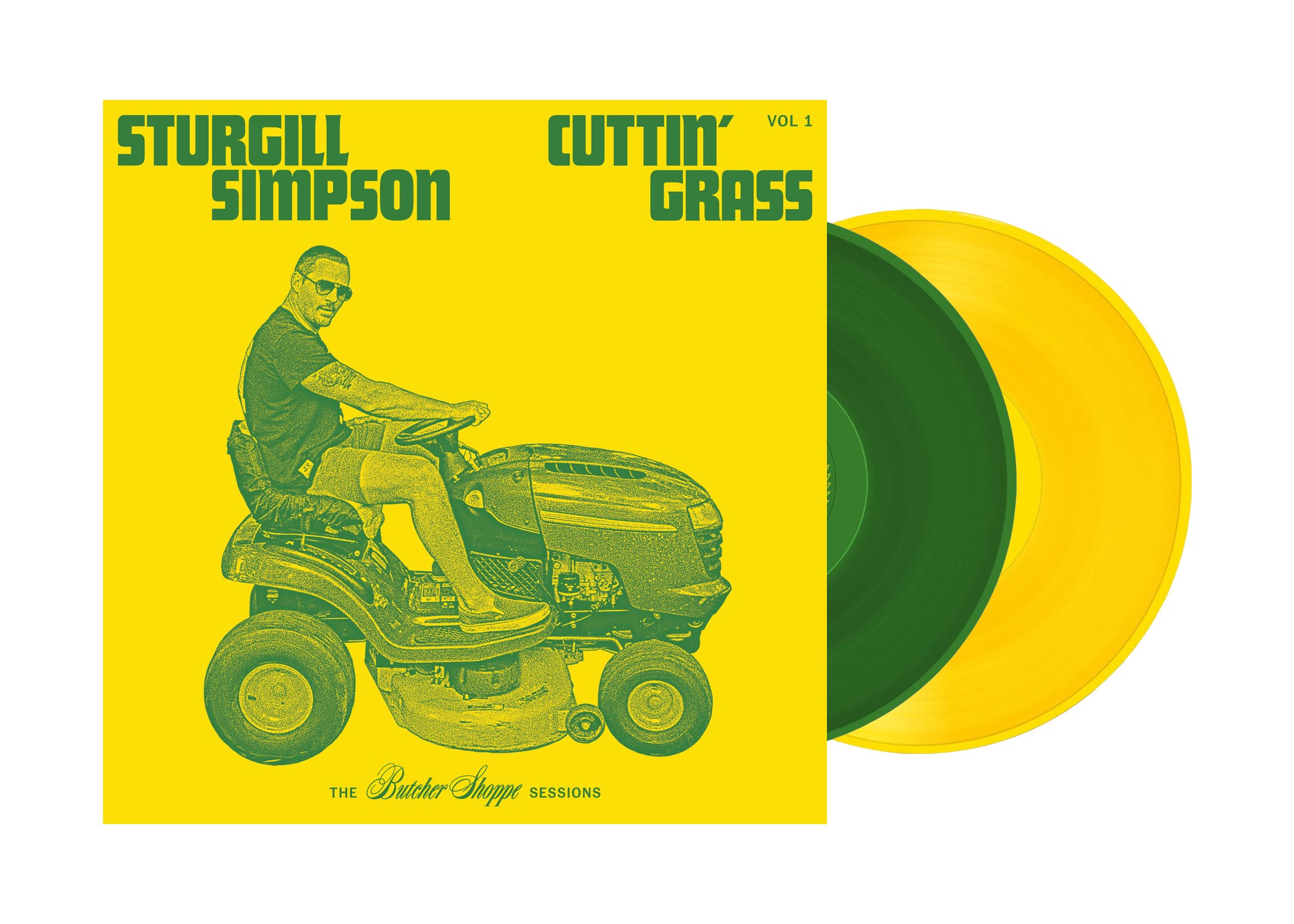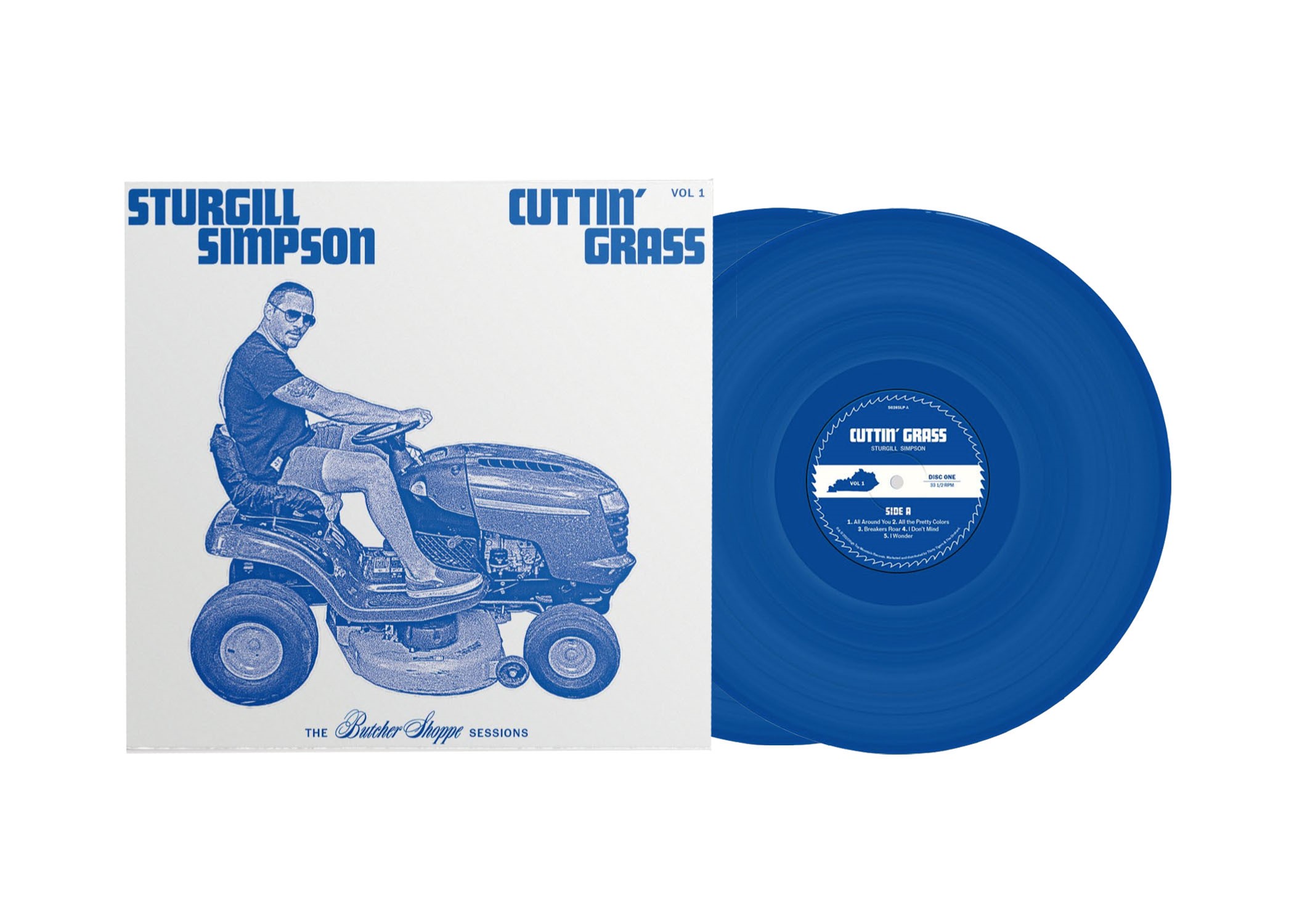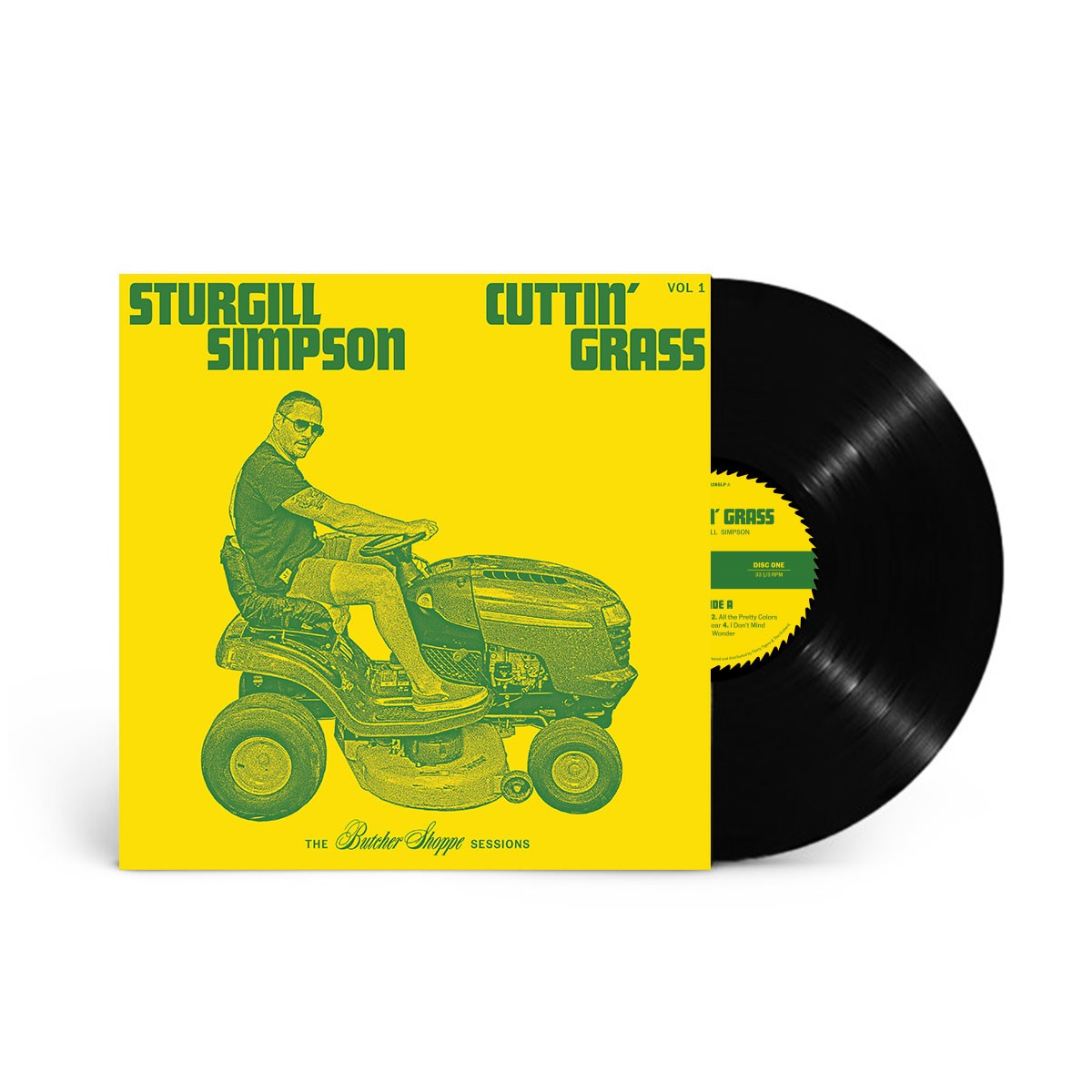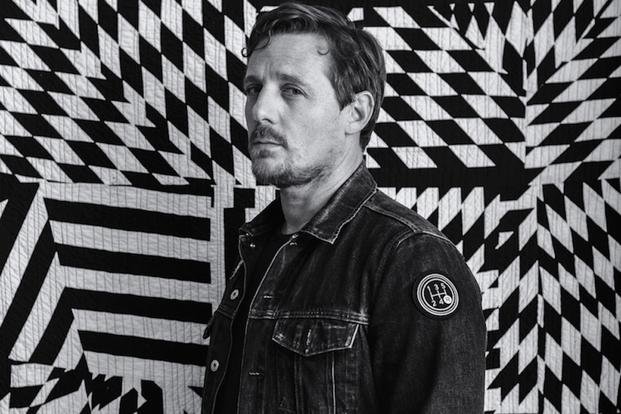Cuttin’ Grass – Vol. 1 (The Butcher Shoppe Sessions) – This album started when I was in the third grade.
My paternal grandfather was sort of a bluegrass freak. He played a little mandolin, and after he retired, he’d travel around to bluegrass festivals in his motor home making field recordings. He just lived and ate and breathed it, and every time he’d come to visit, he’d try to shove it down my throat. My palette wasn’t ready to absorb it at the time—I was probably still into the Monkees and, thanks to an older cousin, discovering bands like Cream and Led Zeppelin far too young. He would sit me down and play cassette tapes of live bluegrass. One night in my room, when he could sense my rejection of what I was hearing, he looked at me directly and said, “One day it’s gonna get in ya, and it’ll never get out.” I wish more than anything he was still here and could hear this collection of songs.

Indie Retail Exclusive Green & Yellow Vinyl – PRE-ORDER HERE
Many years later, after returning home to Kentucky from the military and living for some time out on the West coast, I was driving down the road one day and the public radio station played an old Monroe Brothers song and it absolutely floored me. A wave of emotion slammed me in the chest and I had to pull over on the side of the road. I was pretty much drifting at the time—completely lost, I guess you could say—and hearing that music brought everything to the surface. It sounded like home. Bluegrass music is healing. I truly believe this to be true. It is made from ancient, organic tones and, as with most all forms of music, the vibrations and the pulse can be extremely therapeutic.
“When I’m not playing with my kids, I just sit around playing guitar all day, which I haven’t really done for a number of years”
After that, I spent the next eight years or so obsessively scouring the earth for any and all of the old recordings of this music I could find. This was pre-YouTube era, so it wasn’t that easy. In 2005, I moved to Nashville for the first time. I was there for about a year, and the only thing I did was sit in my cinder block garage apartment and go to the Station Inn every Sunday night to play bluegrass. Needless to say, it was not the career jump-start I was hoping for, and I ended up moving back out west and taking a railroad job.

Vinyl Me, Please Exclusive Blue Vinyl – PRE-ORDER HERE
There’s been various reoccurring phases of obsession throughout my life with just about every kind of American music. In high school I was completely obsessed with electric blues and guitar playing. As I got older, I got more into writing and singing songs and playing acoustic guitars, more out of necessity than anything due to living in small apartments where I couldn’t crank up an amp. All the songs I’ve ever recorded in my life were written on one guitar, a Martin HD-28 I’ve owned since I was much younger, and sung in a fashion that was probably closer to bluegrass or country blues than to anything else. So doing a bluegrass album was always in my heart and in the back of my head. I had it in my mind for a long time that someday I wanted to cut as many of these songs as possible in that fashion, just organic and stripped down to the raw bones of the composition, without any heady production. If you can’t sit down and play the song like that, it’s probably not a very good song.
Last year, we made a pretty bangin’ rock and roll record and started a big arena tour, but it all got halted and ultimately cancelled when I got sick with the ‘Rona. We were in Europe back in January and February, and then came back to do arena shows in the US starting in late February. We had barely gotten into the tour when I knew something didn’t feel right—I felt extremely winded and fatigued, out of shape even…certain notes weren’t coming as easy as they should have. I couldn’t make sense of it, as I had lost a ton of weight in recent months in preparations for the tour and was living cleaner than ever. We played in Charleston on March 10th and the next day I was completely leveled physically, so we cancelled a string of shows that weekend starting in Hampton, West Virginia, and I went home. The next morning I was in the ER with pre-stroke blood pressure levels, feeling like I had an invisible ratchet strap cranking down around my chest. So after years of needing the break I never allowed myself, the universe decided it was time I stay home and take it easy.
I was stuck at home recovering in south Tennessee. I didn’t have any social media presence whatsoever to speak of before this last tour and the guys in my band gave me a lot of grief about that, so I let my drummer set my page up. I spend a lot of time in the woods at home. So on one of many boring days in quarantine, I made some goofy post in character as a backwoods badass named “Dick Daddy” running a fictitious survival school looking for new recruits, and somebody commented, “If you put that on a t-shirt, I’d buy it.” So I thought, what if I put it on 30,000 t-shirts and give that money to charity? Having been personally affected by this virus, I was trying to think of some way to help and to use the platform for something other than narcissism or toxicity. The response was amazing and hilarious. I received some pretty far-out recruit application videos in those weeks from people stuck at home trying to “live above Hell.”

Standard Black Vinyl – PRE-ORDER HERE
In an effort to raise more money, I told my fans that if they hit a certain number by a deadline, I would put on a livestream concert, and if we reached a second goal, I’d put a record out this year. Well, they blew those goals completely out of the water, so really it was the fans made this album happen. Otherwise I may have just as easily spent all summer fishing and changing diapers. I called up my engineer/co-producer/partner in crime, David Ferguson and said, “Get all the best players in town,” and we went in and banged this record out in about three days, with no planning or preparation.
Ferg had been begging me to make this album since we’d met in 2015. He has been a true friend and touchstone for me in Nashville where I’ve had so few.
He has also probably forgotten more about recording music than most people will ever know in this life, so I put myself in his hands and asked him to produce the sessions so I could focus more on having fun and singing. I self-produced my last two albums and have learned it can sometimes be an unnecessarily exhausting process wearing all those hats at the same time.
That same week we did a charity gig at the Ryman, which was essentially a livestream of our first rehearsal. That was one of the more surreal gigs of my life, playing that room completely empty.
I typically go into the studio with most of the album written in my head and end up throwing half the songs away and writing the rest during the process once the album reveals itself for what it wants to be. But with this record, I just went though my back catalogue and listed which songs I thought would work best and surrounded myself with musical wizards, so at most there might have been some second takes…but not many. Once they learned the form, we just went in and hit record. Ferg and I told everyone, “What you play off the floor is what it’s going to be—we’re not punching in solos or overdubbing anything, it’s just going to be totally raw and live.” Due to modern recording technology and the endless choices it brings, even modern bluegrass recordings have suffered from the soul-sucking pursuit of perfection. Merle Haggard once told me that “perfect is about the most boring thing on Earth.” When it comes to music, he was dead on. As a result it was the fastest recording I’ve ever made.
Adapting the songs was pretty easy; even a few of the tunes that I thought might be a little weird worked very easily. Some of the more esoteric psycho-babble songs, like the song “Just Let Go,” we got in the first take. It was just extremely easy, fun, everybody was laughing the whole time. Mostly, I was just humbled and amazed to be in the room with all these musicians. You can’t overstate all their talents—truly next-level freak show kind of stuff.
There are songs from all my albums except for the last one, and there’s two or three that I wrote 15 years ago back when I was playing dive bars in Kentucky. Those are the songs that were really cool to hear finally realized the way I had always wanted them to be recorded. “I Don’t Mind” is a song I wrote in 2006 or 2007, and it’s probably my wife’s favorite song that I’ve ever written. So she basically said, “Don’t come home if that thing’s not on the album” I thought it turned out really pretty, really beautiful, everybody did a great job on it.
If I had to say what’s the most definitively bluegrass song on the record, I would probably say “All the Pretty Colors.” The performance, the feel, the lyrical content, that could be like a bluegrass standard some day. I really loved what Sierra Hull, who sings and plays mandolin, did on “Breaker’s Roar”—she put these lilting harmonies on it that made it just as pretty as the strings on the Sailor’s Guide record. I thought that was really cool. She’s such an amazing and special talent and her mandolin playing really brought a fresh contemporary feel to the album that might otherwise not have been there had I used any number of other players. She also kept everyone on their best behavior in the studio. Bluegrass musicians can be a squirrelly bunch.
The bluegrass I love is from post-World War II up to the mid-‘70s. All of it, from the classic styles to the Ozark style, and especially some of the folk-tinged, almost mystical sounds that came out of California in the late ’60s. After that, everything kinda got away from the true pulse and the rhythm of bluegrass that Bill Monroe devised, and became more based on hot flash soloing and herky-jerky “look what I can do.” That stuff does nothing for me.
My grandfather always told me that when it came to the instrumental or the solo sections, if you get away from the melody of the song, you’re not playing bluegrass anymore, you’re just showing off. So we were trying to adhere to the Jimmy Martin swing, the Clinch Mountain feel, because that’s the bluegrass I love. It should sound like a train rolling. I decided to call it volume one—because I could easily and literally do seventeen of these albums!
The thing I’ve realized about the ride I’ve been on these past seven years is that to me, despite what others may call and label them, all my records are simply “American music.” My head and my heart go different directions all the time, and when you put out a record, it becomes this definitive thing, like “this is who you are now” because people need to define things for the cycle of that album. This album for me was always just supposed to be a sort of simple mix tape for my fans, so it’s somewhat funny to me to think we might play TV shows and what not to promote it, and for a time I’ll be considered a bluegrass musician. In all honesty, though, I guess that’s probably the closest thing to the truth that could ever be put in print about me.

This album also begins a new phase for my career. I’m starting back the way I started out, on my own record label. I’m realizing more and more every day what I already knew, which is that I was always supposed to be an independent artist. I’m just trying to look forward and create without any industry timelines or narratives and all the creative restrictions that inevitably come with them. The real benefit is that I’ve completely fallen back in love with music again. I was really burnt out for a long while, due to so many variables that had absolutely nothing to do with making music, and as a result had started associating music with some of the headaches behind the curtain that came with it. But with all that now in the rearview, I am feeling extremely healthy and happy. Mostly I’m just extremely grateful to wake up every day and look at my children. When I’m not playing with my kids, I just sit around playing guitar all day, which I haven’t really done for a number of years.
The world’s hurting right now in so many ways…there are a lot of people in way worse shape than most of us could ever imagine. I cannot fix or change any of this. But I can change myself. And I can put some music out, and hopefully, if nothing else, it might make some people forget about their pain and troubles for fifty-five minutes.
